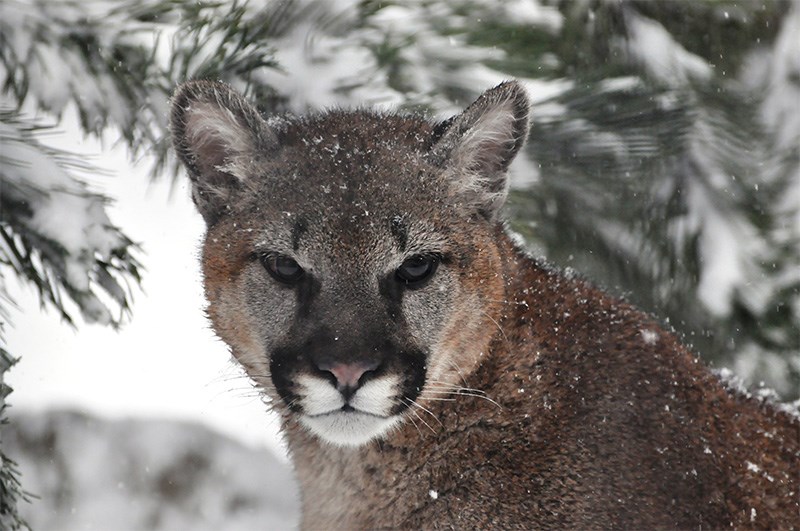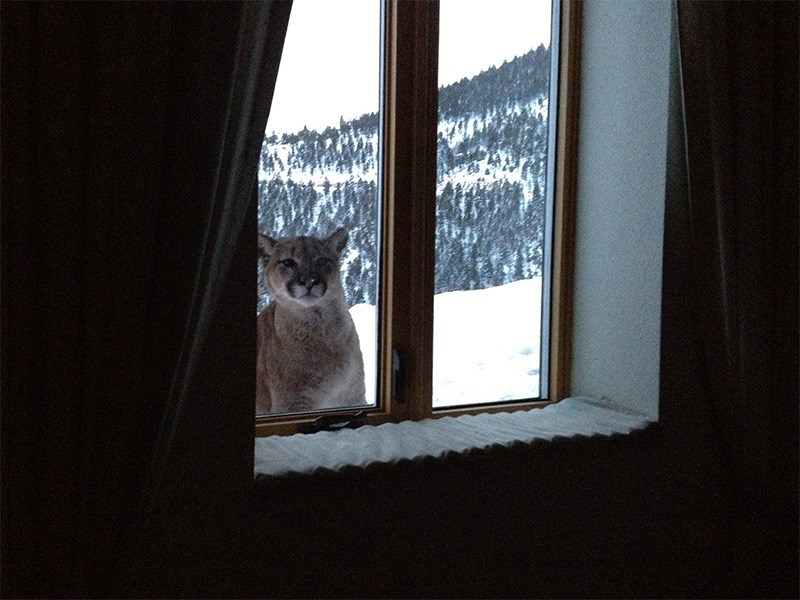The recent spate of dry weather may be bringing cougars into the Tri-Cities as they search for small prey.
Cougar sightings have increased dramatically in the last month, according to the Ministry of Environment and officials say weather may be the reason why.
Dry weather causes the scent of deer to dissipate faster, making cougars more likely to turn to smaller prey such as domestic pets, and conservation officers are urging people to take precautions.
The latest numbers show 39 reports of cougar sightings between Feb. 1 and March 4 in the Tri-Cities, compared to six over the same period in 2018.

Guarding pets and removing attractants that lure small prey is recommended to keep cougars away, said Sgt. Todd Hunter of the BC Conservation Officer Service.
“There is no easy way to deal with them. The best way is to discourage them, hopefully, they move on to get their prey.”
Paula Wild, the author of seven books including The Cougar, an award-winning book published in 2013, urged people to be careful, especially after a man was confronted by a cougar while walking his dog in the 600-block of Falcon Drive in Port Moody on Feb. 23.
“People should be vigilant and watchful, especially since a cougar has threatened a dog and been seen in high human-use areas. Cougars can be active any time of day or night but are most active in the hours leading up to and after dawn and dusk. Children and pets should be watched closely and people should avoid walking in wooded areas, especially during the times mentioned above. Pets should not be let out alone after dark and dogs should be walked on-leash,” Wild said in an email to The Tri-City News.
She pointed out that the Tri-Cities has lots of corridors, which cougars travel in search of prey. In some cases, a young cougar might move into a suburban area because it’s sick or starving or it has been chased out of its territory by a more dominant cougar.
If confronted by a cougar, people should make themselves look as large as possible, yell aggressively and maintain eye contact.
“Never run from or turn your back on a cougar,” Wild further stated. “Loud noise is an excellent deterrent. People have scared cougars off by blowing persistently on a whistle or using an air horn. Bear spray is good too.
“The best thing people can do now is be vigilant and report all cougar sightings to the BC Conservation Officer Service so they can track its movements. Hopefully, it will move on.”
Todd also recommended that people report cougar sightings so conservation officers can decide how best to manage the situation.
“Right now these are sightings and we're managing by monitoring. If it does meet those thresholds [such as conflict with people or pets] we do act for public safety,” Hunter said, noting that if cougars appear to be hanging around an area conservation officers have to act.
Last May and June, three cougars had to be destroyed in the Chelsea Park area of Port Coquitlam because they wouldn’t leave the neighbourhood and were preying on domestic animals.
The RAPP (Report All Poachers and Polluters) line is 1-877-952-7277.



